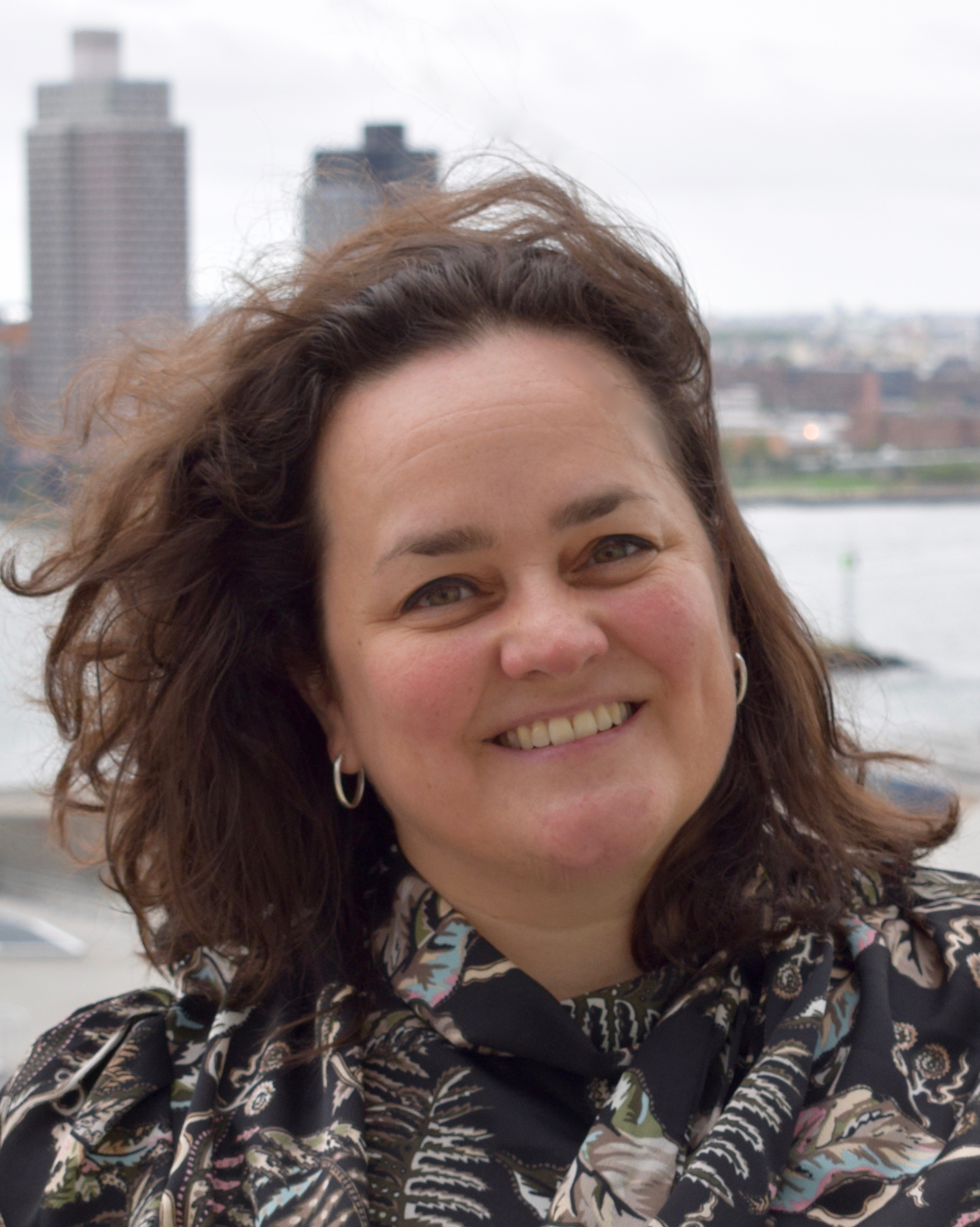Home
Camden Conversations
Camden Conversations
As part of our intention to involve schools, governors and anyone else who's interested in the development of Coming Back Stronger, Camden’s new education strategy, we are arranging a series of Camden Conversations, which are designed to help us think more broadly and creatively. These sessions take place online, normally from 4pm to 5pm, fortnightly on Wednesdays. We are inviting a number of interesting speakers, practitioners and thinkers to lead these sessions. You can read more about the sessions, as well as view past recordings, below.
Session 11 - Nick Brook, Deputy General Secretary of National Association of Head Teachers - Wednesday 7 July 2021 between 4pm-5pmOur eleventh Camden Conversation was led by Nick Brook, Deputy General Secretary of National Association of Head Teachers and will be on the topic of School Improvement.
Nick has been Deputy General Secretary of NAHT since September 2016. Prior to this, he ran his own successful education consultancy. Having started his career as a primary teacher Nick has over twenty-five years’ experience of public sector delivery in central government, local government and schools. For ten years, as a Senior Civil Servant, he shaped policy and transformed delivery in some of the most high-profile, high-priority areas in Government, including the Home Office – where he led the Anti-Social Behaviour and Crime Prevention Unit; the Training and Development Agency for Schools – as Director of School Workforce Remodelling and at Ofsted, leading thematic and subject inspection and external communications. As Deputy General Secretary at NAHT, Nick leads the policy and research, press and media and organising and campaigns teams.
Nick is also a member of Camden’s Education Strategy Board, which is developing Camden’s new education strategy, Building Back Stronger.
Session 10 - Rose Luckin, Professor of Learner Centred Design at UCL Knowledge Lab - Wednesday 23 June 2021 between 4pm-5pmOur tenth Camden Conversation was led by Rose Luckin, Professor of Learner Centred Design at UCL Knowledge Lab. Her research involves blending theories from the learning sciences with techniques from Artificial Intelligence. This session for Camden will be on the topic "Reaping the most benefit from AI for teaching and learning: how schools and educators can become ready?”
Professor Luckin is author of Machine Learning and Human Intelligence: the future of education in the 21st century (2018); director of EDUCATE Ventures Research Limited, a London accelerator for educational technology start-ups; president of the International Society for AI in Education; co-founder of the Institute for Ethical AI in Education; member of the UK Office for Students Horizon Scanning panel; adviser to the Topol review into the NHS workforce; and one of the 20 most influential people in Education (Seldon List 2017).
Session 9 - Dr Karen Edge, Reader in Educational Leadership at UCL Institute of Education (IOE) - Wednesday 9 June 2021 between 4pm-5pm
Our ninth Camden Conversation was led by Dr Karen Edge, Reader in Educational Leadership at UCL Institute of Education (IOE) and UCL’s Pro-Vice Provost (International) from 2016-19.
Karen has conducted research in over 30 countries and is currently leading a 7-country study of teacher motivation. Karen recently completed the Global City Leaders Project which worked with Generation X (under 45-year-old) school leaders in London, New York City and Toronto. Karen is also preparing two books on Generation X leaders (Routledge) and City-based education policy contexts and the influence on school leaders (Bloomsbury).
She sits on ESRC (UK) and Danish Research Review Panels and the Advisory Panel for International School Leadership Principals in Ontario. She is Past Editor-in-Chief of Educational Assessment, Evaluation and Accountability (EAEA) and a current Editorial Board Member for EAEA, School Leadership and Management and Leadership and Policy in Schools.
Prior to joining the IOE, Karen briefly served as Senior Policy Advisor to the Minister of Education in Ontario, Canada. Karen also worked as consultant/researcher at the World Bank in Washington, DC and Principal of Edge Strategy Group, a small social research-consulting firm. She completed her PhD in knowledge management and educational reform at the Ontario Institute of Education/University of Toronto. Karen is a highly sought after keynote speaker. She is known for being able to blend theory and practice with insight and humour.
Session 8 - Professor Becky Francis, Chief Executive, Education Endowment Foundation - Wednesday 19 May 2021, 4pm-5pmOur eighth Camden Conversation was called Evidence for Recovery.
Professor Becky Francis (FAcSS, PhD) is Chief Executive Officer of the Education Endowment Foundation. She was previously Director of the UCL Institute of Education (IOE), which is ranked #1 in the world for education in the international QS rankings. Her prior roles include Professor of Education and Social Justice at King’s College London, Director of Education at the RSA and Standing Advisor to the Parliamentary Education Select Committee.
Throughout her career, Becky has sought to maximise the impact of academic research by working closely with teachers and policy-makers. She has spearheaded high-profile research programmes assessing the impact of major reforms in the English school system on educational inequalities, and is sought out internationally as an advisor to Governments on education policy.
Becky was the inaugural Charles Yidan Global Fellow at Harvard University. Her academic expertise and extensive publications centre on social identities and inequalities in educational contexts. She is best known for her body of research on social identities and educational attainment, including gender, race and social class.
Session 7 - Olly Newton, Executive Director, Edge Foundation - Wednesday 5 May 2021, 4pm-5pmOlly oversees Edge’s work on research, policy and Edge Future Learning. He is passionate about connecting researchers, policy makers and practitioners to learn from each other.
Before Edge, he spent ten years with the Department for Education, most recently as Head of Apprenticeship Strategy. Olly is based in Sheffield where he is a governor and Enterprise Adviser for Firth Park Academy and volunteers with the Scout Association.
The Edge Foundation works to inspire the education system to give all young people across the UK the knowledge, skills and behaviours they need to flourish in their future life and work. It believes in a broad and balanced curriculum, interactive and engaging real-world learning, high-quality technical and professional training and rich relationships between education and employers.
Session 6 - Dr Lee Elliot Major, Professor of Social Mobility at the University of Exeter - Wednesday 21 April 2021, 4pm -5pmLee Elliot Major is Britain’s first Professor of Social Mobility, based at the University of Exeter, and formerly Chief Executive of the Sutton Trust. His session was called 'Apocalypse or new dawn? Social mobility and education in the post-Covid era'.
He has written several award-winning books including Social Mobility and Its Enemies and What Do We Know and What Should We Do About Social Mobility? , cited by the FT as one of the books of 2020.
Lee is one of the most prominent public voices in national debates over fairness, education inequality and social mobility. He is the first in his family to attend higher education and lived on his own from age 15. He has served as a school governor in Camden for 20 years, currently at William Ellis School, and is a Camden parent.
He was formerly a trustee of the Education Endowment Foundation, and was previously a journalist for the Guardian and THES.
His current research is looking at education inequalities induced by the Covid crisis. Lee was awarded an OBE in 2019. In July 2020 he was one of 20 people named in ‘People Management's Diversity and Inclusion Power List’.
He was recently made a Fellow of the Academy of Social Sciences. He is an Associate Member of Nuffield College, University of Oxford, an Associate of LSE’s Centre for Economic Performance, a Visiting Fellow at the LSE’s International Inequalities Institute. He is also an Honorary Professor at the UCL Institute of Education. He is a trustee of the Ted Wragg Trust.
Session 5: Wednesday 24 March 2021, 4pm-5pm Louise Stoll, Professor of Professional Learning at UCL and Bill Lucas, Professor of Learning at University of Winchester and Director of the Centre for Real-World Learning (CRL)Louise Stoll PhD FAcSS FRSA is Professor of Professional Learning at University College London’s Institute of Education and an international consultant. Her research and development activity focuses on how schools, local and national systems create capacity for learning in a changing world, with particular emphasis on professional learning communities and learning networks, creative leadership and leadership development. Among recent projects, she led a study of successful teaching schools for England’s Teaching School Councils and a national knowledge exchange project, working with middle (teacher) leaders. She has also evaluated progress towards an evidence-based teaching system for England’s Department for Education, and has synthesised the findings of teaching school alliances’ R&D national theme projects for the National College for Teaching and Leadership.
Louise was named as one of The Sunday Times’ 500 2016 most influential people in Britain. She is a former President of the International Congress for School Effectiveness and Improvement (ICSEI), Fellow of the Academy of the Social Sciences, and expert to the OECD, contributing to its Innovative Learning Environments, Transforming Schools into Learning Organisations, Improving School Leadership, and Evaluation and Assessment initiatives.
Bill Lucas is Professor of Learning and Director of the Centre for Real-World Learning (CRL). He founded CRL in 2008, together with Prof. Guy Claxton.
In 2017, Bill was appointed by the OECD as co-chair of the strategic advisory group for the 2021 PISA test of Creative Thinking, which will draw on the work of the CRL. In 2018, he was invited to join the Durham Commission on Creativity in Education as an academic adviser and was subsequently co-author of its first report in 2019. He is currently curating a new online platform, Creativity Exchange, for Arts Council England. Bill is an international adviser to the Victorian Curriculum and Assessment Authority in Australia, to Vinnvard in Sweden and to the OECD/CERI research into critical and creative thinking in France. Bill is Director of Learning for the Fellowship Programme of THIS, the new Healthcare Studies Institute at the University of Cambridge.
With Guy Claxton he is the creator of one of the biggest teacher researcher groups in the world, the Expansive Education Network. Bill is co-founder of Rethinking Assessment, a movement arguing for a major overhaul of the assessment system in England.
Session 4: Peter Hyman, Co-Director of Big Education and Co-Founder and First Head Teacher of School 21 - Wednesday 10 March 2021Peter is the co-founder and the first head teacher of School 21, a pioneering 4-18 school that opened in Stratford, East London in 2012. The school has a growing reputation for developing oracy (speaking) skills having set up Voice 21, a charity working with more than 400 schools across the country. It has also developed sophisticated programmes for real-world learning and well-being.
Peter Hyman and the other co-founders of School 21 held a shared belief that education must be done differently if we are to prepare young people properly for the world they are going into. Their conviction was that we needed schools to rebalance head (academic success), heart (character and well-being) and hand (generating ideas, problem solving, making a difference).
School 21 has developed a series of pedagogies and approaches that give students the chance to find their voice, develop deep knowledge and understanding, and create beautiful work that has real value beyond the classroom.
For nine years to 2003, Peter worked as a strategist and speechwriter to the former British Prime Minister, Tony Blair. He left to become a teaching assistant in a challenging Islington school, before training as a history teacher and working his way up to become a head teacher. He is author of 1 out of 10, from Downing Street Vision to Classroom Reality.
Peter recently wrote an article for the Observer newspaper, which was published on Sunday 7 March 2021, called "Enough of the ‘lost generation’. Instead, let’s reimagine school for our children"
Session 3: Children's Rights in Schools: Getting it right and avoiding the pitfalls - 24 February 2021 By Lee Jerome, Associate Professor of Education at Middlesex UniversityDuring the session, Lee shared international research evidence about the impact of children's rights education (CRE) and highlighted the benefits for children and teachers. He offered a series of benchmarks for good practice to illustrate the implications of CRE for whole-school policy, curriculum planning, teaching and community relations. As well as highlighting these successes, he also covered some of the common pitfalls experienced by others which teachers might fruitfully plan to avoid.
Session 2 : Andy Sprakes, Executive Principal of XP School in Doncaster - Wednesday 10 February 2021XP is part of a broader campus with a primary school and another secondary school. The leadership of all 3 schools work closely together. Rather than being taught separate subjects in different classes, XP students complete term-long learning expeditions. Within these, students create products, services or presentations that are exhibited at the end of the expedition to their parents and the audience the project relates to. Expeditions are created by teachers to address a real issue that students can relate to and invest in personally. They all have academic rigour and are designed to cover many standards of the National Curriculum in depth. Expeditions are designed around real-world issues and problems, and their students work to effect positive change in their communities. Students are engaged and motivated by understanding that their learning has relevance, meaning and purpose.
If you're interested in finding out more about XP School, the links below will take you to YouTube videos which provide more information on their approaches to:
The Reach Academy Feltham is a mixed, non-selective, non-denominational all-through academy for 2- to 18-year-olds. It’s a small school which puts personal relationships, flexibility and the children at the heart of everything it does. It invests heavily in training in attachment theory and describes itself as an ‘attachment-aware school’. It also employs staff and external services specifically to support pupil, parent and staff mental health and physical well-being, in the knowledge that healthy lifestyles and clear expectations around food, exercise and routines such as sleep, will ensure excellent learning for the children.
The Reach Children’s Hub seeks to bring about change from ‘cradle to career’ by ‘catalysing collective action and delivering transformational programmes’. It begins to work with parents at the antenatal stage and the Hub's support will extend to young adults through their post-school destinations. The Hub also aims to have a wider impact in Feltham by increasing local provision accessible to all, integrating and co-locating services, supporting local organisations and strengthening the community.
This engagement phase has finished

...
